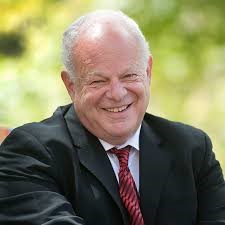Felicitous Life
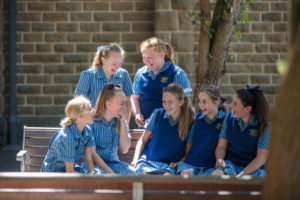
Teaching students to Flourish
Felicitous Life is a holistic wellbeing program for Year’s 7 – 12 at Loreto College Ballarat based on the principals of Positive Psychology.
Loreto College has five values which guide our teaching and learning philosophy: Freedom, Justice, Sincerity, Verity and Felicity. While there are elements of all five values in our wellbeing programs, it is the value of Felicity that drives our desire to have all students learn how to flourish and live a life with “a positive attitude of mind, a disposition of the heart which manifests itself in cheerfulness, good humour, joy, happiness, hope, optimism, friendliness, courtesy, positive thinking, inner peace, self-acceptance and courage.”
Positive Education
Traditional education plus approaches that nurture wellbeing and promote mental health. (Seligman, 2011)
The foundations for the Felicitous Life program is based on the positive education principals of PERMA (Positive Emotion, Engagement, Relationships, Meaning and Accomplishment) by Professor Martin Seligman, and on The Foundations of Positive Education set out by The Positivity Institute under the guidance of its founder and CEO, Dr Suzy Green, who is working with Loreto College Ballarat to facilitate the implementation of a Positive Education program. Elements have been adapted to meet the needs of Loreto College Ballarat, specifically replacing the category of Meaning from PERMA and replacing it with Positive Purpose as it fits into the concept of spirituality in line with the school's Catholic values. Positive Health has also been included as suggested by literature reviews from the Geelong Grammar positive education program by Norrish, Robinson and Williams, 2011 emphasising the importance of positive health values in the health curriculum. Having six categories of positive education is also in line with Dr Suzy Green’s 6-M model of positive education (Mindset, Mood, Motivation, Mindfulness, Meaning and Might).
Felicitous Life – Year Level Themes
Year 7 – What is a Loreto Girl? Our best qualities! (Character Strengths)
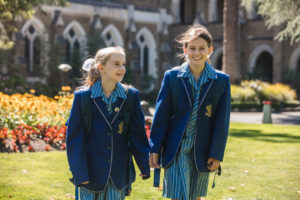
This program introduces new Loreto students to learning with an emphasis on understanding their emotions and a focus on their individual strengths. Learning about emotions and character strengths ties in with an understanding of a new environment, how to process change in our lives and how to flourish during it.
Year 7 students participate in one Felicitous Life class every week. The focus of these lessons looks at explicitly learning about Character Strengths, strength spotting in others, using our strengths to improve resilience, understanding our emotions, the negative bias, as well as savouring and gratitude as methods to increase our positive to negative emotion ratios.
Year 8 – Development of Group working skills and Relationships (Positive Relationships)
 Year 8 students are entering a time of changing social relationships in their lives and need to explicitly learn the appropriate skills in order to understand each other and optimise how to work and get along with others. One of the top skills sought after by current employers is the ability to work as an effective team member. A year focusing on relationship skills, and projects that foster these skills, will enable Loreto students to gain the social understanding necessary to have successful interactions with others in both their studies and future employment prospects.
Year 8 students are entering a time of changing social relationships in their lives and need to explicitly learn the appropriate skills in order to understand each other and optimise how to work and get along with others. One of the top skills sought after by current employers is the ability to work as an effective team member. A year focusing on relationship skills, and projects that foster these skills, will enable Loreto students to gain the social understanding necessary to have successful interactions with others in both their studies and future employment prospects.
Year 8 students participate in one Felicitous Life class every week. The focus of these lessons looks at explicitly learning about developing skills that foster emotional and social competencies around relationship building. Ideas of self-management, empathy, listening skills, conflict resolution skills, responsible decision making, active-constructive responding, development of self-compassion and the understanding of healthy and unhealthy relationships are all explored.
Year 9 – Development of Self through experiential learning (Positive Health)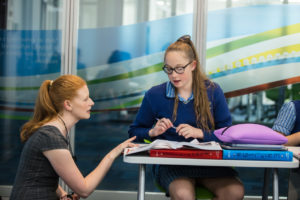
The Year 9 program is developed to allow students to gain a better understanding of themselves and their “Brand.” Positive Health fits into current structures already in place and is explored through the various Active Learning program, concluding with LC Talks.
LC Talks
All students in Year 9 will finish the year with a reflective “TED talk” that we have adjusted into what we call LC Talks. Each student will do a presentation about a message they have heard this year that has resonated with them. They listen to each other’s talk in their class groups and the top ones are then selected to be presented in our theatre to all Year 8 and 9 students.
Year 10 – Understanding how we are part of a greater community (Positive Purpose)
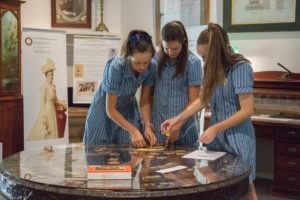
Year 10 students will take the year to enhance their connection to the community through work placements and current community service programs. The expectation is that
Year 10 students will find meaning in being connected and contributing to something bigger than ourselves. The ideas of purpose and meaning also lends itself to connecting more with the Church and finding meaning and spirituality in what we do. Our aim is for students to find a greater sense of purpose in their lives resulting in greater contributions to our community and motivation to be a positive citizen of not just Loreto but our Ballarat Community.
Year 11 – Development of Study Habits (Positive Achievement)
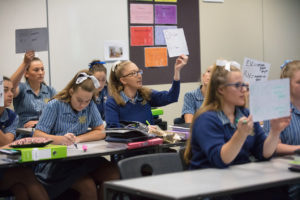 As students enter their final years, Year 11 activities promote practices that allow for greater achievements. Developing goal setting, revision methods and pathway thinking benefits students trying to narrow in on their studies and thinking of future goals.
As students enter their final years, Year 11 activities promote practices that allow for greater achievements. Developing goal setting, revision methods and pathway thinking benefits students trying to narrow in on their studies and thinking of future goals.
Year 12 – Living life high on interest and absorption/intrinsic motivation and mastery of goals (Positive Engageme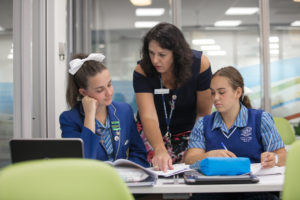 nt)
nt)
With future pathways a prime focus of Year 12, the focus is to help students find intrinsic motivation in what they are doing and develop flow in their working to immerse themselves in their studies fully.
The Felicitous Life Model at Loreto College Ballarat
The “Felicitous Life” model of positive education for Loreto College Ballarat includes the categories of Positive Accomplishment (Mindset), Positive Emotions (Mood), Positive Engagement (Motivation), Positive Health (Mindfulness), Positive Purpose (Meaning) and Positive Relationships (Might).
Overlapping all these principals is the understanding of Strengths Based Learning focusing on the 24 Values in Action (VIA) framework (Peterson & Seligman, 2014).
Dr Suzy Green & Dr Martin Seligman (below)

